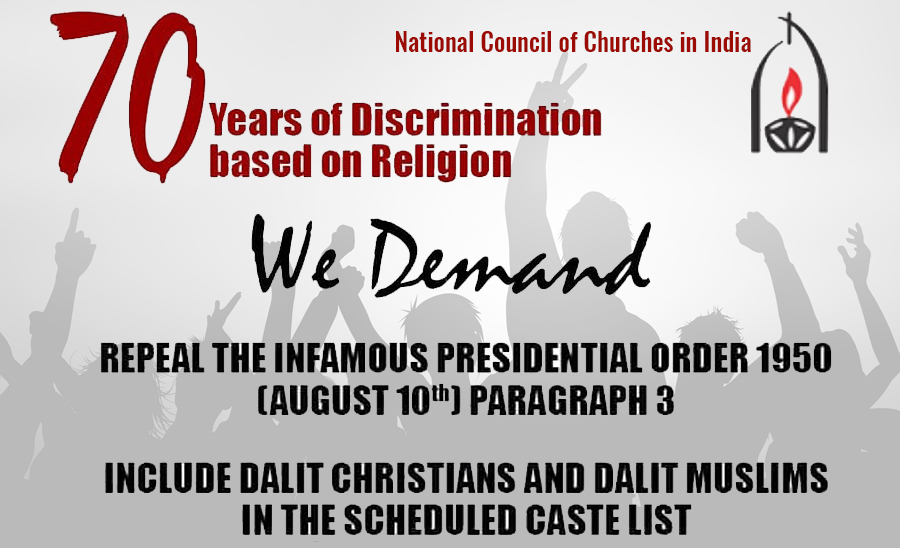‘Scheduled Caste status to Dalit Christians is a need of the hour’, affirms the Christian Conference of Asia

As the Dalit Christians in India have been continuing their struggle for justice over the last 70 years, the Christian Conference of Asia (CCA) extends support to their ongoing advocacy efforts and expresses solidarity to all those who are engaged in the struggle to earn the Scheduled Caste status for Dalit Christians.
While endorsing the advocacy initiatives of the National Council of Churches in India (NCCI) and other members of the wider coalition against the discrimination of Dalit Christians, the CCA General Secretary Dr Mathews George Chunakara stated that the CCA joins with the NCC India and all CCA member churches in India to share their hope that the Indian judiciary will act justly as the opportunity has now come to render justice to millions of Dalit Christians and Dalit Muslims who are deprived of their basic human rights and continue to suffer from social stigma and the horrors of untouchability.
The CCA General Secretary has added that it is encouraging to see the positive response of the Supreme Court of India on 7 January 2020, to examine the plea that Dalit Christians or Christians of Scheduled Castes origin should enjoy the same quota benefits reserved for other Hindu Scheduled Castes.
“It is also a positive sign of hope that the Chief Justice of India has issued notice to the central government that reservation for government jobs and admissions in educational institutions should be made ‘religion-neutral’. These measures will be necessary for helping the Dalit Christians overcome centuries of discrimination and oppression they have been facing,” added Dr Mathews George Chunakara.
Although untouchability has been officially abolished in India, it still continues in social practice and is pervasive across wide swathes of the country. The socioeconomic, political, religious, and cultural oppression that the Dalit populations continue to suffer due to the deeply entrenched nature of the discriminatory practices against them is also allowed to persist, not least owing to the extremely poor implementation of the relevant laws by the ruling elites over the past seven decades in India across the political spectrum.
The Constitution of India, through its Articles 25 to 28, guarantees freedom of religion for all Indian citizens. However, freedom of religion has been denied to millions of Dalit Christians and Dalit Muslims.
The NCC India observed 10 August 2020 as Dalit Rights Day to remind the world about the injustice of 70 years of discrimination against Dalit Christians and Dalit Muslims on the grounds of religion.










